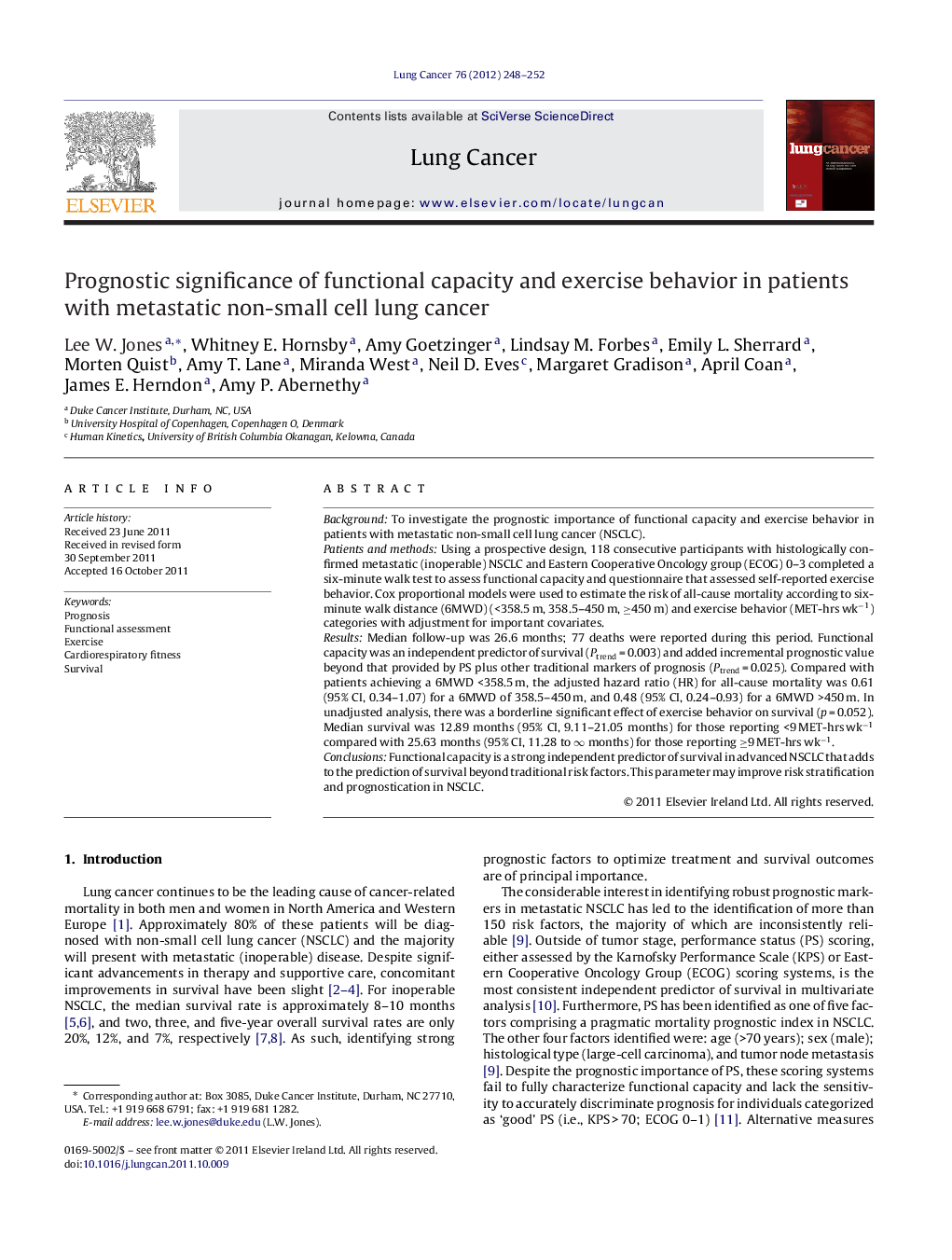| Article ID | Journal | Published Year | Pages | File Type |
|---|---|---|---|---|
| 2141634 | Lung Cancer | 2012 | 5 Pages |
BackgroundTo investigate the prognostic importance of functional capacity and exercise behavior in patients with metastatic non-small cell lung cancer (NSCLC).Patients and methodsUsing a prospective design, 118 consecutive participants with histologically confirmed metastatic (inoperable) NSCLC and Eastern Cooperative Oncology group (ECOG) 0–3 completed a six-minute walk test to assess functional capacity and questionnaire that assessed self-reported exercise behavior. Cox proportional models were used to estimate the risk of all-cause mortality according to six-minute walk distance (6MWD) (<358.5 m, 358.5–450 m, ≥450 m) and exercise behavior (MET-hrs wk−1) categories with adjustment for important covariates.ResultsMedian follow-up was 26.6 months; 77 deaths were reported during this period. Functional capacity was an independent predictor of survival (Ptrend = 0.003) and added incremental prognostic value beyond that provided by PS plus other traditional markers of prognosis (Ptrend = 0.025). Compared with patients achieving a 6MWD <358.5 m, the adjusted hazard ratio (HR) for all-cause mortality was 0.61 (95% CI, 0.34–1.07) for a 6MWD of 358.5–450 m, and 0.48 (95% CI, 0.24–0.93) for a 6MWD >450 m. In unadjusted analysis, there was a borderline significant effect of exercise behavior on survival (p = 0.052). Median survival was 12.89 months (95% CI, 9.11–21.05 months) for those reporting <9 MET-hrs wk−1 compared with 25.63 months (95% CI, 11.28 to ∞ months) for those reporting ≥9 MET-hrs wk−1.ConclusionsFunctional capacity is a strong independent predictor of survival in advanced NSCLC that adds to the prediction of survival beyond traditional risk factors. This parameter may improve risk stratification and prognostication in NSCLC.
